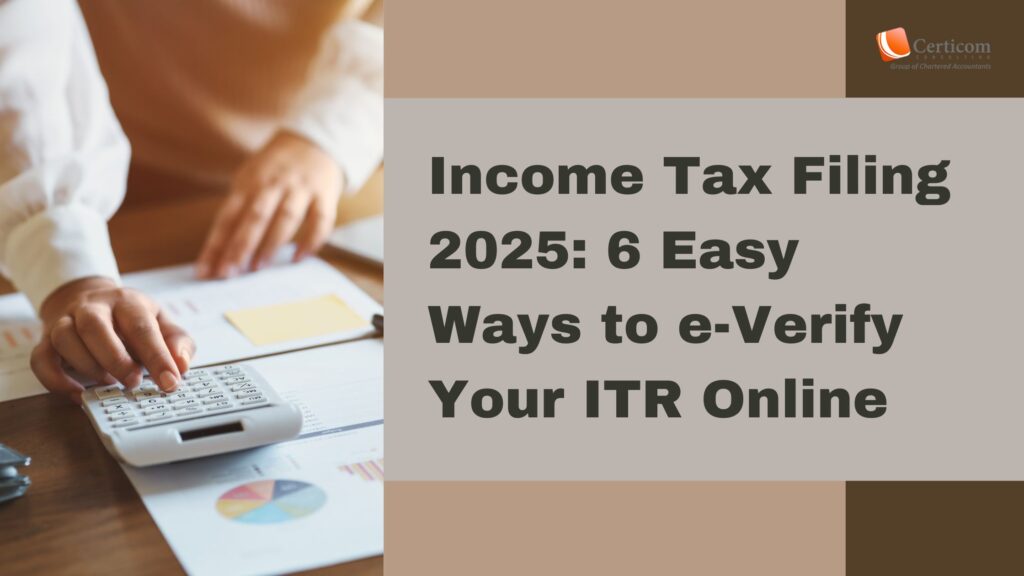Business Transformation: Takeover of Proprietorship by Private Limited Company

The entrepreneurial journey often begins with a sole proprietorship, offering simplicity and direct control. However, as your business grows, the limitations of this structure may become apparent. Converting your proprietorship into a private limited company can unlock numerous benefits, including limited liability, enhanced credibility, and greater access to funding.
However, this transition isn’t a simple switch. It involves navigating a complex web of legal frameworks spanning the Companies Act, Income Tax Act, and Goods and Services Tax (GST) law. Understanding the interplay of these regulations is crucial for a smooth and tax-efficient conversion.
This guide provides a comprehensive analysis of the key legal considerations involved in the takeover of a proprietorship firm by a private limited company in India.
The Income Tax Angle: Capital Gains Exemption Under Section 47(xiv)
The Income Tax Act, 1961, specifically under Section 47(xiv), offers a significant incentive for proprietorship conversions. It exempts the transfer of capital assets or intangible assets from a sole proprietorship to a company from capital gains tax, provided certain stringent conditions are met:
Complete Transfer: All assets and liabilities of the proprietorship must be transferred to the company. No cherry-picking allowed!
Share Consideration Only: The sole proprietor must receive only equity shares in the company as consideration for the transfer. No cash, property, or other forms of payment are permitted.
Substantial and Sustained Shareholding: The proprietor must hold at least 50% of the total voting power in the company immediately after the transfer. This significant holding must be maintained for a minimum period of five years.

What Happens if These Conditions Aren't Met?
If the conditions of Section 47(xiv) are not met, the tax treatment of the transfer under the Income Tax Act will be as follows:
Slump Sale (Section 50B):
If the entire business, including all assets, liabilities, employees, and contracts, is transferred for a lump sum consideration without allocating individual values to the assets, it is classified as a slump sale.
The profits from a slump sale are taxed as capital gains.
In this case, the cost of acquisition and cost of improvement for capital gains purposes is considered to be the net worth of the business (the difference between assets and liabilities).
Indexation benefits (adjustment for inflation to increase the cost base) are not available in the case of a slump sale.
Asset-wise Transfer:
If individual assets of the proprietorship are transferred separately (rather than as a lump sum), then the transaction is treated as a transfer of assets, and each asset will be subject to capital gains tax.
The tax will depend on the nature of each asset (whether it’s short-term or long-term) and its holding period.
Transfer Below Fair Market Value (Section 56(2)(x)):
If shares are issued by the private limited company to the proprietor in exchange for assets at a value lower than the fair market value (FMV), the difference between the FMV and the issue price of the shares is treated as income in the hands of the company.
This difference is taxable under the provisions of Section 56(2)(x), which deals with income from other sources when a company issues shares for consideration lower than the FMV of the assets.
The Companies Act, 2013: Ensuring Fair Valuation with Section 247
The Companies Act, 2013 requires the valuation of assets by a registered valuer in specific scenarios, particularly when shares are issued for non-cash consideration. This ensures fairness and transparency in the takeover process.
Issue of Shares for Non-Cash Consideration:
When a private limited company issues shares to a proprietor in exchange for the assets of the proprietorship, a registered valuer must determine the fair market value (FMV) of those assets. This complies with Section 62(1)(c) of the Companies Act.Other Corporate Actions:
Valuation by a registered valuer is also required in mergers, amalgamations, and private placements to ensure that asset values are accurately assessed.
Why is Valuation Necessary?
Justifying Share Allotment:
The valuation report helps determine the number of shares to be issued to the proprietor, ensuring it aligns with the fair value of the transferred assets.
Compliance with Corporate Law:
It ensures adherence to the Companies Act and related rules, promoting corporate governance.
Protecting Shareholder Interests:
Fair valuation protects existing and future shareholders by preventing the overvaluation or undervaluation of assets.
When is Valuation NOT Mandatory Under Section 247?
As highlighted in the provided table, valuation under Section 247 is generally not required in scenarios like:
- Simple asset takeovers without share issuance.
- Rights issues at par or predetermined prices.
- Valuation solely for Income Tax purposes (e.g., avoiding angel tax).
- Slump sales where no shares are issued.
- Stamp duty valuation for immovable property.
However, even if not mandated by the Companies Act, a fair valuation is often prudent for Income Tax purposes, especially when claiming exemption under Section 47(xiv).
The GST Perspective: Transfer of a Going Concern
Under the CGST Act, 2017, the transfer of business assets is generally taxable. However, Entry 2 of Notification No. 12/2017 – Central Tax (Rate) provides an exemption for the transfer of a going concern. If the proprietorship is transferred as a going concern to a private limited company, the transaction may be exempt from GST.
What Constitutes a "Going Concern" under GST?
A “going concern” typically implies the transfer of the entire business operation, including assets, liabilities, employees, and ongoing contracts, with the intention that the buyer will continue to operate the business without significant disruption.
Input Tax Credit (ITC) Transfer:
If the transfer qualifies as a going concern, the unutilized Input Tax Credit (ITC) in the proprietorship’s GST credit ledger can be transferred to the private limited company. This transfer is done using Form GST ITC-02 under Rule 41 of the CGST Rules. The proprietorship (transferor) must file the form electronically, and the private limited company (transferee) must accept it on the GST portal, along with uploading the Business Transfer Agreement.
Important GST Considerations
Cancellation of Old Registration: The proprietorship’s GST registration must be canceled after the transfer, as per Rule 20 of the CGST Rules.
Final Return: A final return in Form GSTR-10 must be filed after the cancellation of the GST registration.
Valuation (GST Perspective): While GST law doesn’t require specific valuation for transferring a going concern, fair value may be relevant in case of scrutiny.
The Combined Legal Landscape: A Holistic Approach
Successfully navigating the takeover requires a coordinated approach that considers all three legal frameworks simultaneously. Here’s a cross-referenced summary:
| Issue | Income Tax Act | Companies Act | GST Law |
|---|---|---|---|
| Exemption on capital gains | Section 47(xiv) – subject to conditions | — | — |
| Valuation of business | FMV needed to justify exemption | Section 247 + Valuer Rules for share issuance | Not mandatory for GST, but relevant |
| Consideration for transfer | Shares only for Section 47(xiv) exemption | Share allotment via BTA and Form PAS-3 | Not taxable if “going concern” |
| Continuity of business | 5-year holding required for proprietor | BTA + MOA should reflect transfer of business | Mandatory for “going concern” exemption |
| Input Tax Credit (ITC) | — | — | Rule 41 + Form ITC-02 for transfer |
| GST liability | — | — | Exempt if “going concern” conditions are met |
| ROC filings | — | Allotment forms, MOA changes, etc. | — |

Essential Documents for a Smooth Transition
A well-documented process is crucial for legal compliance. Key documents with cross-law relevance include:
| Document | Purpose | Applicable Law(s) |
|---|---|---|
| Business Transfer Agreement (BTA) | Legal foundation of the transfer, outlining terms and conditions | All 3 Acts |
| Valuation Report (Registered Valuer) | Fair market value assessment for share issuance and transfer value | Companies Act, Income Tax |
| Share Certificates | Evidence of consideration in the form of shares | Companies Act, Income Tax |
| Form ITC-02 | To facilitate the transfer of GST input tax credit | GST |
| Final Return (GSTR-10) | To close the old proprietorship’s GST registration | GST |
| Form PAS-3 | For reporting the allotment of shares | Companies Act |
| Board Resolutions | Approvals from the company’s board for each stage of the transaction | Companies Act |
Conclusion: Strategic Planning for a Successful Takeover
Converting your proprietorship into a private limited company is a pivotal step with lasting impact. While the advantages are clear, navigating the legal intricacies demands careful planning and execution. Understanding the nuances of the Income Tax Act, Companies Act, and GST law, along with maintaining thorough documentation, is vital for a smooth and tax-efficient transition.
It’s highly advisable to consult with legal and financial professionals experienced in business conversions to ensure compliance and streamline the process. Taking a proactive approach will set the foundation for a successful transformation and pave the way for your business’s continued growth and success in its new corporate form.
Related Post
TDS Return Form 26Q: Due Dates, Applicability & Related Forms
Have You Reported Your Foreign Assets in Your Income Tax Return?
Book A One To One Consultation Now For FREE
How can we help? *




